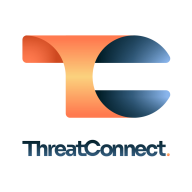

In the cybersecurity space, ThreatConnect TIP and Microsoft Sentinel compete in threat intelligence and security information event management. ThreatConnect has an edge in pricing and support, whereas Microsoft Sentinel is often preferred for its comprehensive feature set, making it a strong choice for organizations focusing on capabilities.
Features: ThreatConnect offers strong automation, integration capabilities, threat intelligence management, collaborative workspaces, and flexible third-party system integrations. Microsoft Sentinel provides extensive cloud-native SIEM capabilities, powerful analytics, AI-based threat detection, and seamless Azure service integration.
Room for Improvement: ThreatConnect could improve on expanding its SIEM capabilities, enhancing native integration with cloud platforms, and providing more granular analytics tools. Microsoft Sentinel might focus on improving its user interface, reducing false positives, and offering more personalized customer service options.
Ease of Deployment and Customer Service: ThreatConnect offers flexible deployment options and extensive support with personalized service during deployment. Microsoft Sentinel, deployed natively on Azure, supports a quick cloud-based setup using existing Microsoft environments, backed by Microsoft’s robust support ecosystem.
Pricing and ROI: ThreatConnect provides straightforward pricing, enabling significant ROI for targeted threat intelligence features. Microsoft Sentinel uses a scalable, usage-based pricing model, potentially leading to higher costs but offering attractive ROI due to its extensive features and integration opportunities.


Microsoft Sentinel is a scalable, cloud-native, security information event management (SIEM) and security orchestration automated response (SOAR) solution that lets you see and stop threats before they cause harm. Microsoft Sentinel delivers intelligent security analytics and threat intelligence across the enterprise, providing a single solution for alert detection, threat visibility, proactive hunting, and threat response. Eliminate security infrastructure setup and maintenance, and elastically scale to meet your security needs—while reducing IT costs. With Microsoft Sentinel, you can:
- Collect data at cloud scale—across all users, devices, applications, and infrastructure, both on-premises and in multiple clouds
- Detect previously uncovered threats and minimize false positives using analytics and unparalleled threat intelligence from Microsoft
- Investigate threats with AI and hunt suspicious activities at scale, tapping into decades of cybersecurity work at Microsoft
- Respond to incidents rapidly with built-in orchestration and automation of common tasks
To learn more about our solution, ask questions, and share feedback, join our Microsoft Security, Compliance and Identity Community.
The ThreatConnect Threat Intelligence Operations (TIOps) Platform lets organizations operationalize and evolve their cyber threat intel program, enabling cybersecurity operations teams to measurably improve their organization’s resilience to attacks. The TIOps Platform enhances collaboration across teams to drive proactive threat defense, and improve threat detection and response. The AI- and automation-powered TI Ops Platform enables analysts to perform all their work effectively and efficiently in a single, unified platform, allowing threat intel to be aggregated, analyzed, prioritized, and actioned against the most relevant threats.
We monitor all Security Orchestration Automation and Response (SOAR) reviews to prevent fraudulent reviews and keep review quality high. We do not post reviews by company employees or direct competitors. We validate each review for authenticity via cross-reference with LinkedIn, and personal follow-up with the reviewer when necessary.